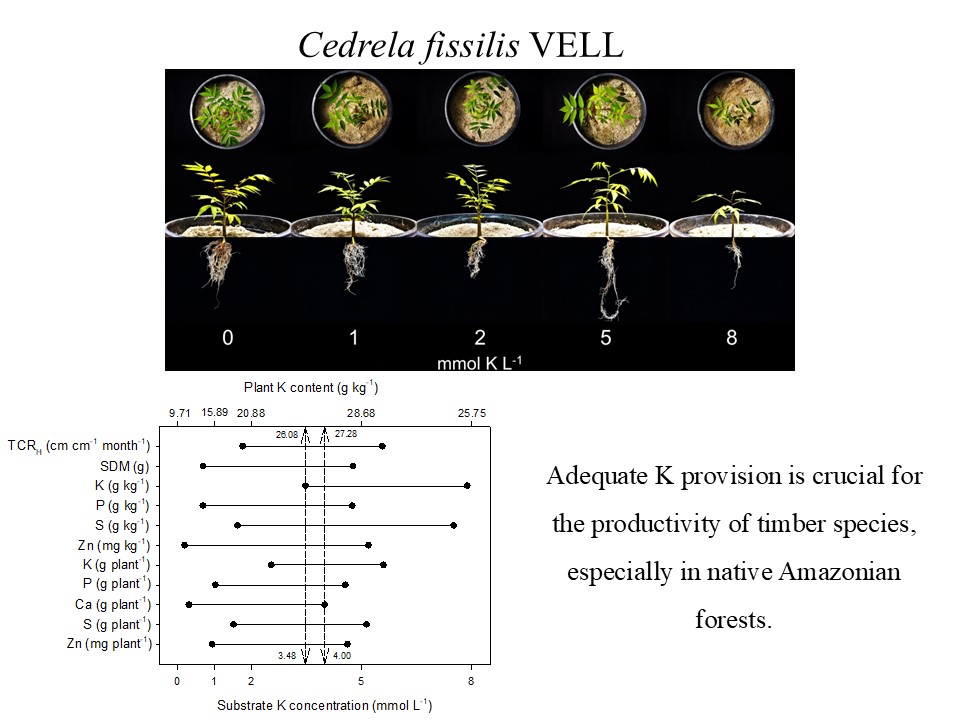Rev. Bras. Ciênc. Solo.2024;48:e0240046.
Critical potassium concentrations for the initial cultivation of Cedrela fissilis Vell
16/Dec/2024
DOI: 10.36783/18069657rbcs20240046
Graphical Abstract

Highlights
Potassium (K) deficiency affects the physical processes of cell elongation
The increase in K content enhances the absorption of phosphorus, sulfur, and zinc
K content decreases the absorption of calcium, magnesium, manganese, copper and iron
Proline levels did not increase according to K doses
Excess K supply to Cedrela fissilis VELL harms nutritional status and growth
ABSTRACT
Providing nutrients in optimum quantities is essential for increasing the productivity of timber species. Despite this, we know little about the actual potassium (K) requirements of native Amazonian Forest species. This study aimed to determine the critical level of K deficiency and toxicity for the initial cultivation of cedar. We grew Cedrela fissilis seedlings in a nutrient solution under the effect of five concentrations of K (0, 1, 2, 5, and 8 mmol L-1) in a completely randomized design with five replications. After 30 days, we evaluated the relative growth rate, dry mass production, proline content, symptomatology, macro and micronutrient content and accumulation, and K absorption and utilization efficiencies. Concentrations of K positively influence the growth, accumulation, and content of nutrients in the dry mass of the aerial part of young cedar plants. Providing varying amounts of potassium significantly affects the nutritional and growth parameters of Cedrela fissilis seedlings. Potassium doses of 3.5 – 4.00 mmol L-1 in the growing substrate led to better nutritional status (26.08 – 27.28 g kg-1 of K) and plant growth.
166
